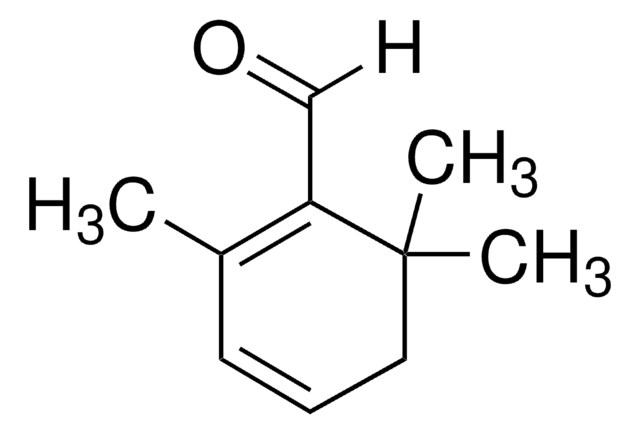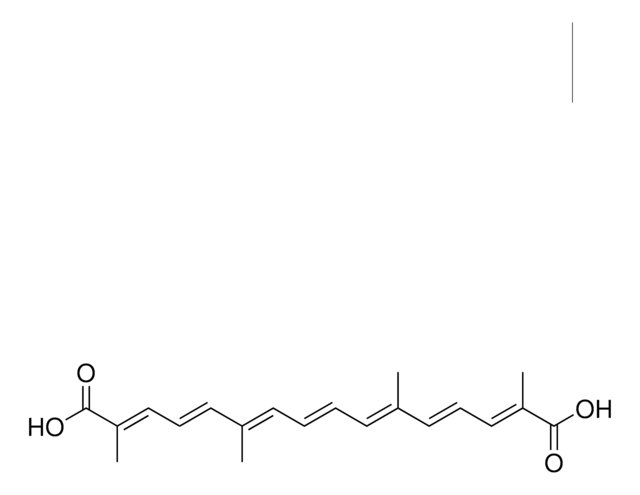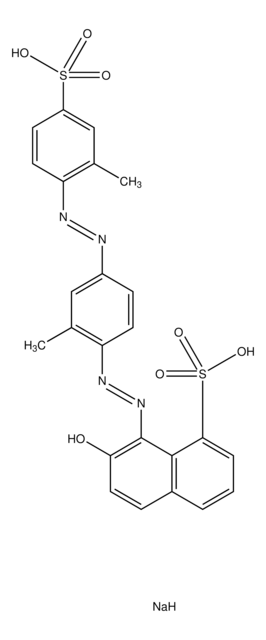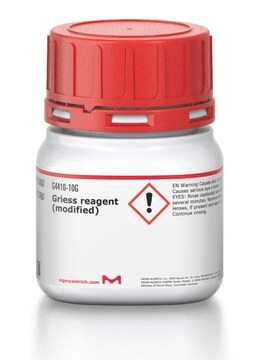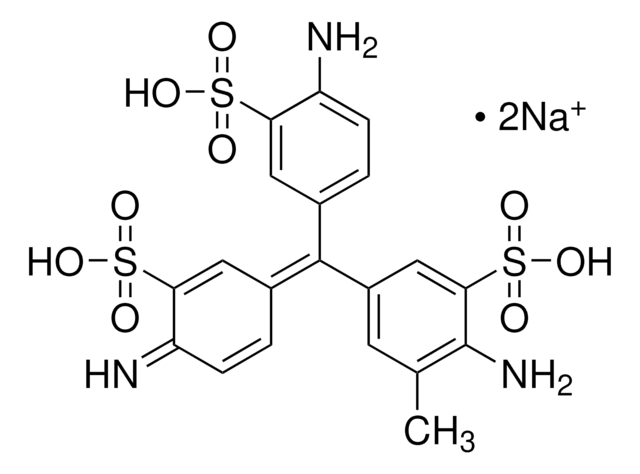S8381
Saffron
crude source of crocetin and crocein
Sinonimo/i:
Crocus sativus
Autenticatiper visualizzare i prezzi riservati alla tua organizzazione & contrattuali
About This Item
Codice UNSPSC:
12171500
NACRES:
NA.47
Prodotti consigliati
Livello qualitativo
applicazioni
diagnostic assay manufacturing
hematology
histology
Temperatura di conservazione
room temp
Categorie correlate
Descrizione generale
Dried flower stigmas that may be used in a variety of histological staining procedures.
Applicazioni
Saffron has been used to develop an HPLC analytical protocol for the identification and quantification of the major components of saffron. It has also been used to study its cytotoxic effects.
Azioni biochim/fisiol
Saffron is a crude source of the carotenoid antioxidants crocein and crocetin, as well as other carotenoids and monoterpene aldehydes. Saffron has been studied for use as an anticancer and chemopreventive agent and for its effects on antioxidant defense system pathways. A study in mice reported treatment with saffron reduced lipid peroxidation and caspase-3 activity, while increasing total brain antioxidant activity.
Codice della classe di stoccaggio
11 - Combustible Solids
Classe di pericolosità dell'acqua (WGK)
WGK 3
Punto d’infiammabilità (°F)
Not applicable
Punto d’infiammabilità (°C)
Not applicable
Dispositivi di protezione individuale
Eyeshields, Gloves, type N95 (US)
Certificati d'analisi (COA)
Cerca il Certificati d'analisi (COA) digitando il numero di lotto/batch corrispondente. I numeri di lotto o di batch sono stampati sull'etichetta dei prodotti dopo la parola ‘Lotto’ o ‘Batch’.
Possiedi già questo prodotto?
I documenti relativi ai prodotti acquistati recentemente sono disponibili nell’Archivio dei documenti.
I clienti hanno visto anche
S Zahra Bathaie et al.
Critical reviews in food science and nutrition, 50(8), 761-786 (2010-09-11)
Saffron (Crocus sativus L.) has been an important subject of interest for research teams in the past two decades because of its various biological properties. Chemical analysis has shown the presence of more than 150 components in saffron stigmas. Here
HPLC quantification of major active components from 11
different saffron (Crocus sativus L.) sources
different saffron (Crocus sativus L.) sources
Heriberto Caballero-Ortega
Food Chemistry (2007)
Inhibitory Effect of Saffron (Crocus sativus L.) from Diferent
Countries
Countries
L. Riveron-Negrete
Laboratory Experiments in Organic Chemistry, 5th ed. null
Magdalini A Papandreou et al.
Behavioural brain research, 219(2), 197-204 (2011-01-18)
Brain aging is characterized by cognitive decline and memory deficits that could be the result of oxidative stress and impaired cholinergic function. In this study, the effects of a daily, 7-day, intraperitoneal administration of saffron on cognitive functions were examined
Biomedical properties of saffron and its potential use in cancer therapy and chemoprevention trials.
F I Abdullaev et al.
Cancer detection and prevention, 28(6), 426-432 (2004-12-08)
Chemoprevention strategies are very attractive and have earned serious consideration as potential means of controlling the incidence of cancer. An important element of anticancer drug development using plants is the accumulation and analysis of pertinent experimental data and purported ethnomedical
Il team dei nostri ricercatori vanta grande esperienza in tutte le aree della ricerca quali Life Science, scienza dei materiali, sintesi chimica, cromatografia, discipline analitiche, ecc..
Contatta l'Assistenza Tecnica.
